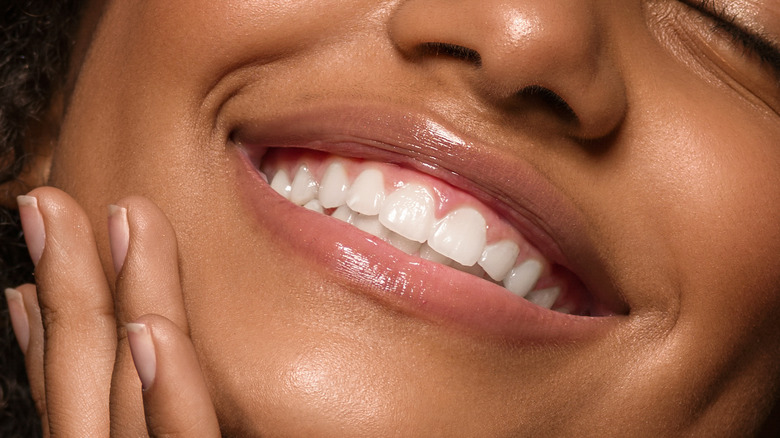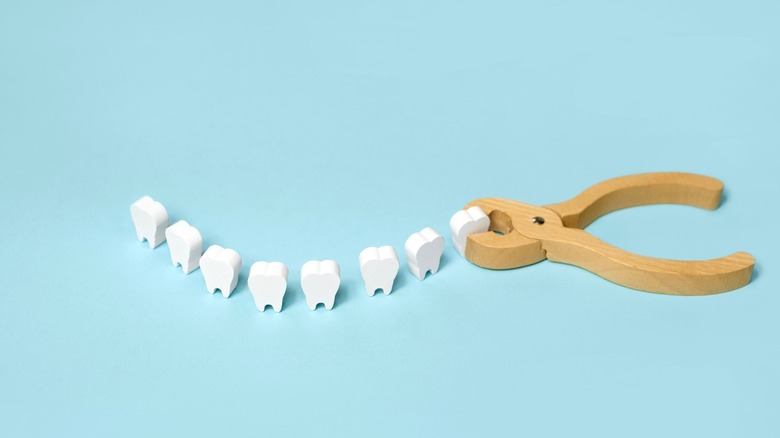The Scientific Reason Teeth Are The Only Part Of The Body That Can't Heal Themselves
The human body's astonishing ability to heal itself is truly remarkable. Through elaborate inner workings — including the rejuvenation and reproduction of various blood cells — your immune system is designed to combat diseases and viruses, repair broken bones and damaged skin, and maintain its overall organic well-being. Oftentimes, it can do so without the supplemental aid of medicine, as WebMD reports.
It's like an internal system of checks and balances that is constantly working to keep your health on an even keel. However, like all systems of checks and balances, there are certain limitations to it. According to Exquisite Dentistry, there's one part of your body that unfortunately can't really heal on its own. If you crack a chomper (not to mention cavities), don't expect to wake up a few days later with a glossy new section of your smile, because teeth don't possess the inherent ability to repair themselves.
Why can't teeth heal themselves?
If you've ever had to get a tooth repaired, whether from a break or a cavity, you know how uncomfortable the process can be. However, it happens to be a necessary evil in keeping your teeth healthy and useful. When you chip a tooth, you break into its lower surface that's comprised of something called dentin. Dentin resides beneath the tooth's enamel and, as Exquisite Dentistry reports, is a hard, bony tissue that makes up most of the tooth itself. It's also made mostly of stem cells.
While dentin does actually start to regenerate after a section of tooth is broken off, it unfortunately can only produce a finite amount of itself, and it's not enough to fully repair the damage. Ergo, you should seek dental assistance quickly in order to avoid the progression of potential infection or further breaking of the tooth. However, experts might be on the brink of a new medical technology that can rectify dentin's limited ability to fundamentally rebuild teeth after they've suffered some significant damage (per Exquisite Dentistry).
Your teeth may be able to rebuild themselves someday
"A new era of regenerate dentistry is on its way, where new dental treatments use an understanding of the biology and physiology of the tooth," researcher Paul Sharpe shared after a 2017 study (via Scientific Reports, posted at Nature). Alongside three others, Sharpe tested a rudimentary new technology that could help human teeth to rebuild themselves over time. According to WebMD, the researchers utilized stem cells in a medication called Tideglusib that showed great promise in their experiments with mice. Tideglusib is presently used to treat Alzheimer's disease, says Exquisite Dentistry.
The site further reports that Sharpe and his associates drilled holes into the mice's teeth and then administered Tideglusib to see if it showed any regenerative promise. Amazingly, the animals produced a notable uptick in dentin after six weeks' time, which suggests that you might be saving significantly on dentist bills in coming years. Until then, take care of those pearly whites and do your best to keep them all in one piece.


